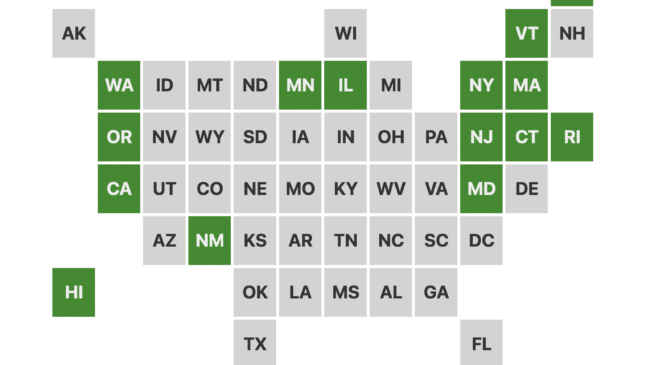Public pension funds and other state and local government entities are increasingly incorporating environmental, social, and corporate governance (ESG) considerations into investment decisions. These considerations are used to assess a company’s societal impact before investing (or continuing to invest) in the firm.
While private investors are free to utilize whatever assessments they deem most valuable, ESG assessments are rightly seen by many as out-of-scope for public pension systems and other investments of taxpayer-sourced funds. Public pension trustees, for example, are required by state laws to exercise their fiduciary responsibilities to maximize public pension systems’ investment returns at acceptable levels of risk for retirees and future beneficiaries.
In what appears to be a contradiction of these fiduciary standards, many public pension plans, along with some state treasurers, comptrollers, and state investment boards, have become signatories to global climate accords and members of climate activist groups.
One commonly used set of ESG investment standards originates from the Paris Aligned Investment Initiative (PAII) created in 2019 by the Institutional Investors Group on Climate Change to provide “a member-led forum to explore how investors can align portfolios to the goals of the Paris Agreement.”
The North American group involved in PAII, the Ceres Investor Network on Climate Risk and Sustainability, says it works “with our members to advance sustainable investment practices, engage with corporate leaders, and advocate for key policy and regulatory solutions to accelerate the transition to a just, sustainable, net zero emissions economy.”
And another group related to Ceres is Climate Action 100+, which says it “is an investor-led initiative to ensure the world’s largest corporate greenhouse gas emitters take necessary action on climate change.”
Regardless of how one feels about environmental policy, it involves overtly political questions that must be adjudicated via a legislative process. It is inappropriate for public pension funds to leverage their assets for political purposes rather than serving their duty to fully fund the pension benefits that have been promised to public workers.
The map below identifies the US state and local public entities signed on to Ceres and/or Climate Action 100+. You can click (or select on mobile) on individual states to see the public entities that have joined these groups.

